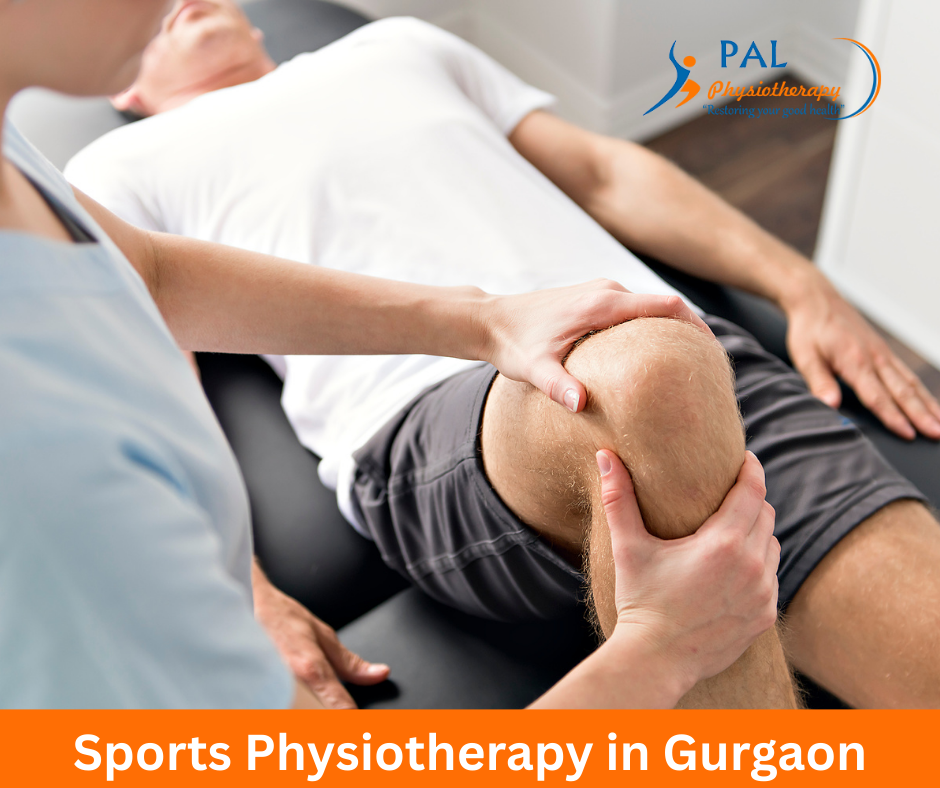Sports Physiotherapy: Enhancing Performance and Recovery for Athletes

In today’s world, fitness and sports have become an integral part of healthy living. Whether it is professional athletes or fitness enthusiasts, physical performance is always linked to strength, endurance, and agility. However, with sports also comes the risk of injuries, muscle strain, and joint problems. This is where sports physiotherapy plays a crucial role. It is a specialized branch of physiotherapy designed to treat sports-related injuries, improve athletic performance, and prevent future health issues.
What is Sports Physiotherapy?
Sports physiotherapy is a form of physiotherapy that focuses specifically on injuries and conditions related to sports and exercise. Unlike general physiotherapy, it is tailored for athletes, gym-goers, and individuals who engage in physical activities on a regular basis. The approach includes not just recovery, but also prevention and performance enhancement.
Sports physiotherapists understand the physical demands of various sports and design personalized treatment plans to ensure athletes can return to play quickly and safely. It involves a mix of manual therapy, exercise programs, electrotherapy, and education on proper techniques.
Importance of Sports Physiotherapy for Athletes
For professional and amateur athletes alike, sports physiotherapy is essential for maintaining peak performance. The benefits include:
-
Faster Recovery from Injuries
Sports injuries like sprains, ligament tears, muscle pulls, and fractures are common. Sports physiotherapists use evidence-based techniques to speed up recovery and restore mobility. -
Injury Prevention
By analyzing body movement, muscle strength, and posture, physiotherapists identify areas of weakness that could lead to future injuries. Customized exercises help strengthen those areas and prevent injuries. -
Performance Enhancement
Beyond recovery, sports physiotherapy helps athletes boost strength, flexibility, and stamina. Correct training techniques allow players to perform at their highest potential. -
Pain Management
Chronic pain from overuse injuries or old strains can be treated effectively with therapy techniques like dry needling, manual therapy, and targeted exercises. -
Rehabilitation Programs
After major injuries or surgeries, physiotherapists design structured rehabilitation programs to gradually restore fitness levels and ensure a safe return to sports.
Common Sports Injuries Treated with Sports Physiotherapy
Sports physiotherapists deal with a wide range of injuries, including:
-
Sprains and Strains – Caused by overstretching ligaments or muscles.
-
Tennis Elbow & Golfer’s Elbow – Common in athletes with repetitive arm movements.
-
ACL Tears & Knee Injuries – Frequently seen in football, basketball, and running.
-
Shin Splints – Painful condition due to overuse of leg muscles.
-
Shoulder Dislocations – Common in contact sports and weightlifting.
-
Fractures – Rehabilitation support post-fracture healing.
Each injury requires a tailored approach, and sports physiotherapy ensures that treatment is specific to the individual and their sport.
Techniques Used in Sports Physiotherapy
Sports physiotherapists use a variety of techniques depending on the type and severity of the injury:
-
Manual Therapy – Hands-on techniques such as joint mobilization and soft tissue massage.
-
Exercise Therapy – Strengthening and flexibility exercises to restore function.
-
Electrotherapy – Use of ultrasound, TENS, and other devices to reduce pain and swelling.
-
Dry Needling & Acupuncture – For muscle relaxation and pain relief.
-
Taping & Bracing – To provide support during recovery and prevent re-injury.
-
Rehabilitation Programs – Long-term exercise plans for full recovery.
Role of Sports Physiotherapy in Preventing Injuries
Prevention is better than cure, and sports physiotherapy emphasizes this principle. Physiotherapists conduct movement assessments to identify muscular imbalances and faulty techniques. Corrective exercises are then prescribed to strengthen weak muscles and enhance overall stability.
Warm-up and cool-down techniques are also taught to athletes to reduce the risk of sudden injuries during training or competition. Regular physiotherapy sessions can significantly lower the chances of recurring injuries, allowing athletes to enjoy longer careers.
Benefits of Sports Physiotherapy for Non-Athletes
While often associated with athletes, sports physiotherapy is equally beneficial for non-professionals. Fitness enthusiasts, runners, gym-goers, and even those who engage in recreational sports can gain from it. Common issues like back pain, knee pain, or shoulder stiffness from workouts can be effectively managed.
Additionally, people recovering from surgery or those with mobility issues can benefit from the techniques used in sports physiotherapy, as it enhances flexibility and improves daily functioning.
Sports Physiotherapy and Mental Health
Sports injuries not only affect the body but also take a toll on mental well-being. Being sidelined due to injury can cause stress, anxiety, and frustration. Sports physiotherapists provide reassurance, structured recovery plans, and gradual milestones that boost confidence.
The return-to-sport programs are designed to ensure both physical and mental readiness, reducing the fear of re-injury and helping athletes return stronger than before.
Why Choose Sports Physiotherapy Over General Physiotherapy?
While general physiotherapy covers a wide range of conditions, sports physiotherapy is more specialized. It is designed to meet the specific demands of high-performance sports. The key differences include:
-
Sport-Specific Knowledge – Tailored treatments for each sport.
-
Focus on Quick Recovery – Goal-oriented approach to minimize downtime.
-
Advanced Techniques – Use of modern therapies and sports science.
-
Performance-Oriented Approach – Goes beyond healing, focusing on strength and skill enhancement.
This makes it the preferred choice for athletes and active individuals who need faster, more targeted results.
The Growing Demand for Sports Physiotherapy
With increasing participation in sports, marathons, fitness challenges, and gym workouts, the demand for sports physiotherapy is on the rise. More people now recognize the importance of proper rehabilitation and injury prevention. Many sports teams and academies employ physiotherapists as an essential part of their support staff, ensuring players stay healthy and perform at their best.
Even schools and universities with sports programs are integrating physiotherapy into their training, highlighting its importance at every level of athletic development.
Conclusion
In the world of sports and fitness, where performance and endurance are constantly pushed to the limits, injuries are inevitable. However, with the right care, recovery, and prevention strategies, athletes can continue performing at their best. This is exactly what sports physiotherapy offers—a holistic approach that covers injury treatment, rehabilitation, performance improvement, and injury prevention.




